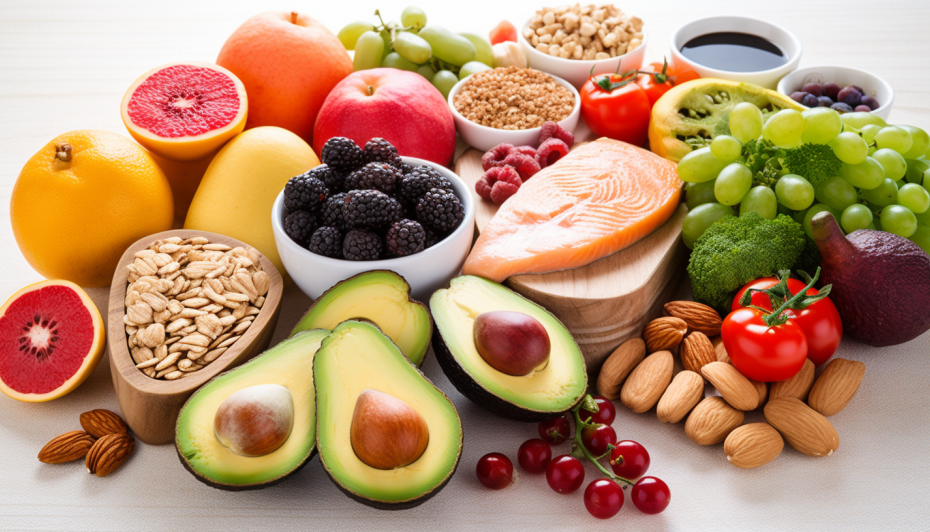In our quest for a healthier and fitter lifestyle, weight loss often becomes a primary goal. While exercise plays a crucial role, adjusting our diet is equally important in achieving sustainable weight loss. In this comprehensive guide, we will delve into effective dietary strategies that can help you shed those extra pounds and improve your overall well-being.
Understanding the Basics of Weight Loss
Before we delve into the specifics, it’s essential to understand the basic principles of weight loss. Weight loss occurs when we consume fewer calories than we burn, creating a calorie deficit. This deficit prompts our body to tap into its fat stores for energy, leading to weight reduction over time.
Assessing Your Current Diet
To adjust your diet for weight loss, begin by evaluating your current eating habits. Keep a food diary for a few days, noting down everything you consume, including portion sizes. This will provide valuable insights into your calorie intake and help identify areas for improvement.
Setting Realistic Goals
When embarking on a weight loss journey, it’s crucial to set realistic goals. Aim for gradual and sustainable weight loss rather than rapid results. Losing 1-2 pounds (0.5-1 kg) per week is considered a healthy and achievable target. This approach ensures that you are more likely to maintain your progress in the long term.
Making Healthy Food Choices
To achieve weight loss, focus on incorporating nutrient-dense foods into your diet. Opt for whole grains, lean proteins, fruits, vegetables, and healthy fats. These foods provide essential nutrients while keeping you feeling satisfied and energized throughout the day. Minimize your consumption of processed foods, sugary snacks, and beverages high in added sugars.
Portion Control and Mindful Eating
Portion control is a vital aspect of weight loss. Be mindful of your serving sizes and avoid eating until you feel overly full. Practice mindful eating by savoring each bite, eating slowly, and paying attention to your body’s hunger and fullness cues. This approach helps prevent overeating and promotes a healthier relationship with food.
Balancing Macronutrients
Properly balancing macronutrients is key to optimizing your diet for weight loss. Aim for a balance of carbohydrates, proteins, and fats in each meal. Carbohydrates provide energy, while proteins promote satiety and aid in muscle preservation. Healthy fats are essential for nutrient absorption and overall well-being. Consulting a registered dietitian can help you determine the appropriate macronutrient ratios for your specific needs.
Incorporating Regular Physical Activity
While this article primarily focuses on dietary adjustments, it’s important to note that regular physical activity plays a vital role in weight loss. Engaging in both cardiovascular exercises and strength training helps boost your metabolism, burn calories, and build lean muscle mass. Aim for at least 150 minutes of moderate-intensity aerobic activity per week, along with two or more days of strength training.
Meal Planning and Preparation
Effective meal planning and preparation can significantly contribute to your weight loss journey. Plan your meals in advance, ensuring they include a variety of nutritious ingredients. This helps you avoid impulsive food choices and allows for better portion control. Dedicate some time each week to prepare and cook meals, creating a stock of healthy options that can be easily reheated and enjoyed throughout the week.
Hydration and Water Intake
Adequate hydration is often overlooked but is crucial for weight loss. Drinking plenty of water not only keeps you hydrated but also helps curb hunger pangs and supports your body’s natural detoxification processes. Aim for at least eight glasses of water per day, and consider replacing sugary beverages with water or herbal teas.
Seeking Professional Guidance
If you find it challenging to make dietary adjustments on your own, don’t hesitate to seek professional guidance. Registered dietitians or nutritionists can provide personalized recommendations based on your individual needs and goals. They can help develop a tailored eating plan, provide ongoing support, and address any specific concerns or challenges you may encounter along the way.
Conclusion
Adjusting your diet is a critical component of successful weight loss. By implementing the strategies outlined in this comprehensive guide, you can create a sustainable eating plan that promotes weight loss while ensuring your body receives the essential nutrients it needs. Remember, achieving your weight loss goals takes time and dedication, so be patient and kind to yourself throughout the process. With the right approach and mindset, you can transform your diet and achieve lasting weight loss results.
